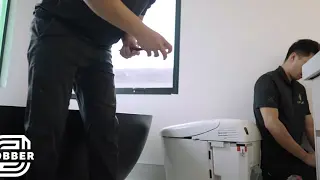Showing up for your very first day in the trades – whether as a plumber, electrician, HVAC tech, or roofer – can be both exciting and nerve-wracking. You want to make a great impression, learn as much as possible, and avoid rookie mistakes. Here’s what to expect and how to prepare so you can walk onto the job site with confidence.
Show Up Early and Ready
Plan to arrive at least 30 minutes (some say an hour) before the official start time. Early is on time, and on time is late – especially when you’re new. Scope out the route the night before, account for morning traffic, and set an alarm that gives you a buffer. Have your clothes ready (clean, appropriate for the work environment) and your basic tools in a bag if required.
Appearance and Attitude
First-day nerves are natural, but a good handshake and friendly demeanor go a long way. Make eye contact, speak up when introducing yourself, and use the person’s name in conversation. If you have a uniform or dress code (like starch jeans, a collared shirt), follow it. Keep your hair neat, use deodorant, and avoid any distracting scents or looks. You want them to see a future professional, not someone who just rolled out of bed.
Safety and Orientation
Either in an office or out on a job site, you’ll likely undergo some form of orientation. This might include: • Reviewing company rules and policies • Getting your ID badge or safety gear • Learning about First Aid stations and evacuation procedures • Meeting key supervisors or coworkers If it’s on a construction site, you’ll also probably receive a quick safety talk, including areas where you must wear PPE (hard hat, safety glasses, ear protection, gloves), plus instructions for muster points in emergencies.
Tools and Equipment
If you don’t have any tools yet, ask beforehand what to bring. For plumbing, for instance, a tape measure, a pair of channel locks, a flashlight, and a notepad are a good start. The foreman or your direct supervisor should show you how to use any specialized tools correctly. If you’re missing something essential, they may instruct you to buy it or provide a loaner until you do.
Team and Terminology
The trades have plenty of jargon: “joint” for a piece of pipe or fitting, “dope” for pipe sealant, “gap” in welding, and so on. Don’t hesitate to ask questions. Better to pause and confirm meaning than to guess and waste time. Also, expect playful hazing – requests for a “pipe stretcher” or “skyhook” often target new guys. Stay polite, be a good sport, and you’ll quickly blend in.
Helping Others
Even if you’re new and don’t fully grasp the technical tasks, offer assistance. Help keep the site tidy, carry materials, and lend a hand with fetching tools. Demonstrate that you’re eager to be part of the crew. The more you show initiative, the more likely senior team members will train you wholeheartedly.
What If It’s Cold or Hot?
Be prepared for the weather if you’re working outdoors or on partially finished buildings. Layer up if it’s chilly, and keep hydration in mind for hot conditions. Ask about any rules for break times or where you can store a personal water bottle.
Problem-Solving Mindset
Embrace the reality that mistakes can happen. If you misplace a tool or misunderstand a direction, own it, learn from it, and move on. The first day (and the first few weeks) will be full of new information. Keep a small notebook to jot down processes, measurements, or coworker names so you don’t have to rely on memory alone.
Setting the Tone
A strong first day helps cement your reputation as reliable, coachable, and hardworking. This is especially critical in a tight-knit environment like the trades, where word travels fast. Making a good impression isn’t about being perfect; it’s about showing you care, asking good questions, and treating people with respect.





